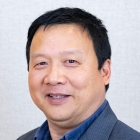You are here
Axonal mRNA transport and local translation as a potentially crucial mechanism for spinal cord axon regeneration
Goals
Axonal protein synthesis has been linked to PNS axon regeneration, but received little attention in the CNS. Regenerating axons require large amounts of proteins in their distal compartment, far from the soma. Local protein synthesis would relieve the need for long-distance anterograde protein transport. It might therefore be crucial for regeneration, particularly in very long axons such as those of the corticospinal tract (CST). We propose to test the hypothesis that increased RAF–MAP kinase signaling as well as inactivation of the phosphatase PTEN (both of which promote CST axon regeneration in mice) increase axonal mRNA translation. We will pursue two specific aims: first, to determine the regulation of ribosomes in CST axons by elevated RAF signaling and PTEN inactivation, and second, to characterize the translatomes of regeneration-competent CST axons. All experiments will employ the lsl-EGFPL10a mouse line (Stanley et al., 2013) mated to the fezf2-CreERT2 line (K. Matho & J. Huang, CSHL, unpublished), to express the ribosomal fusion protein EGFP-L10a in corticospinal motor neurons. In these mice, we will visualize and quantify axonal ribosomes (Aim 1), and purify and analyze the ensemble of mRNAs that are bound to ribosomes in regenerating CST axons (Aim 2). Completion of this study will advance our understanding of how axon regeneration in the spinal cord functions on a basic, molecular level, provide the first evidence on intra-axonal gene expression in growth competent CST axons, and generate a set of candidate genes that are translated in injured CST axons. (CHN: SCIRTS chn:wdg)

